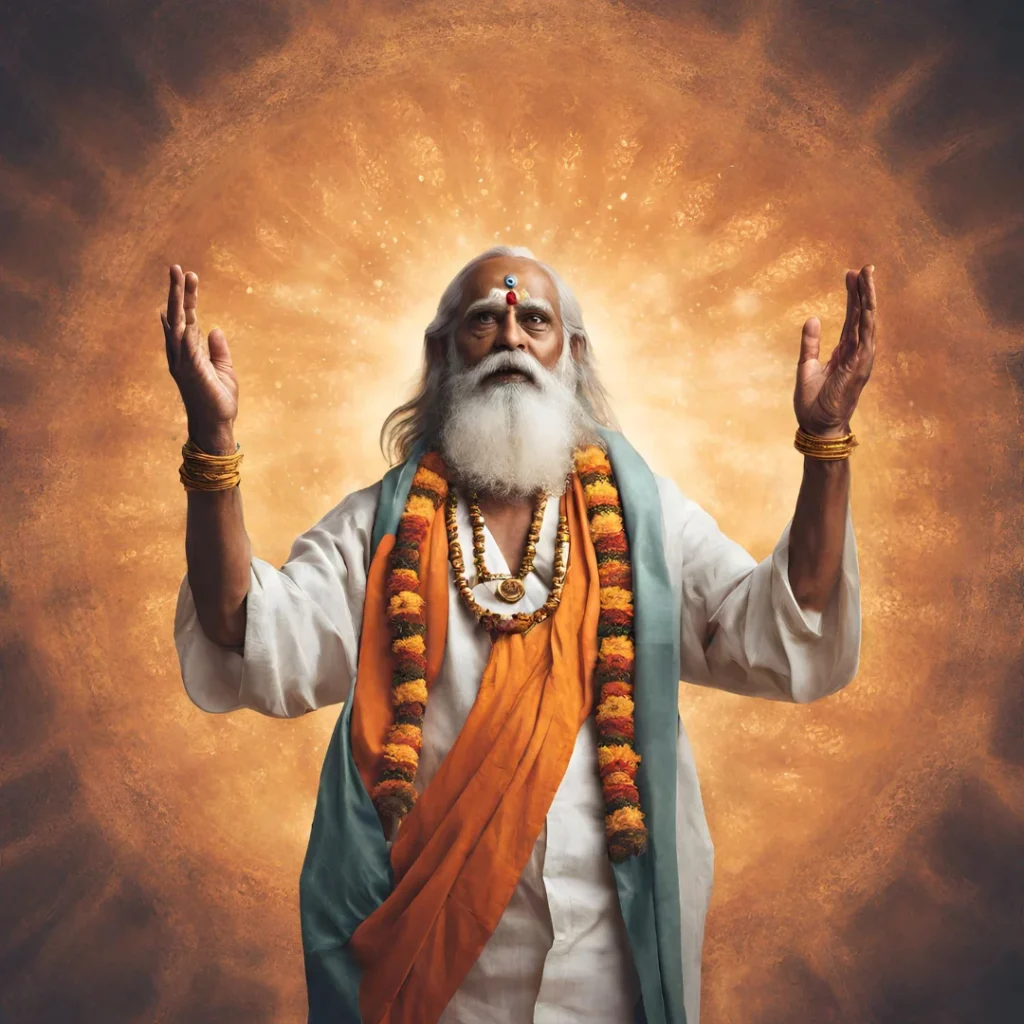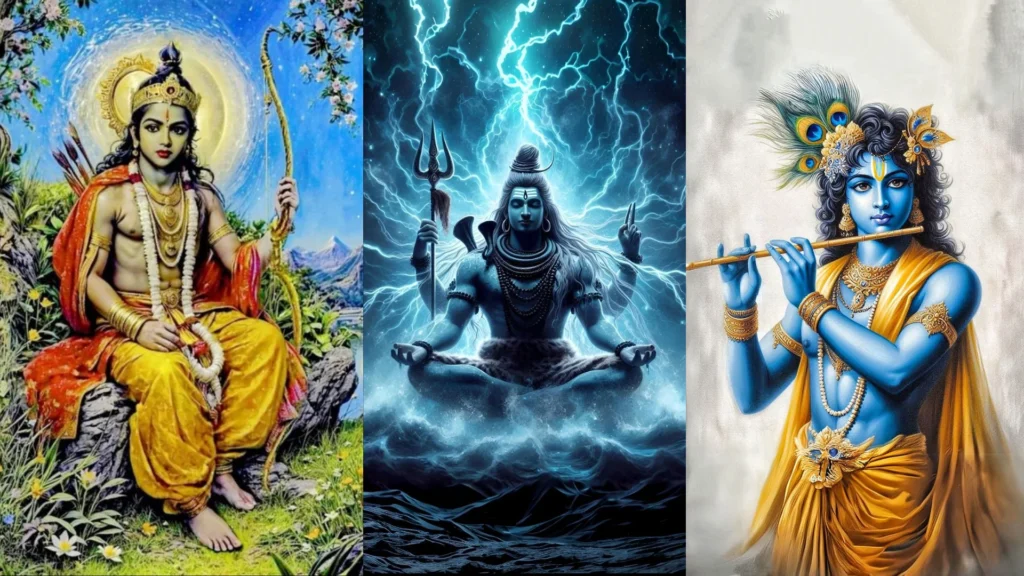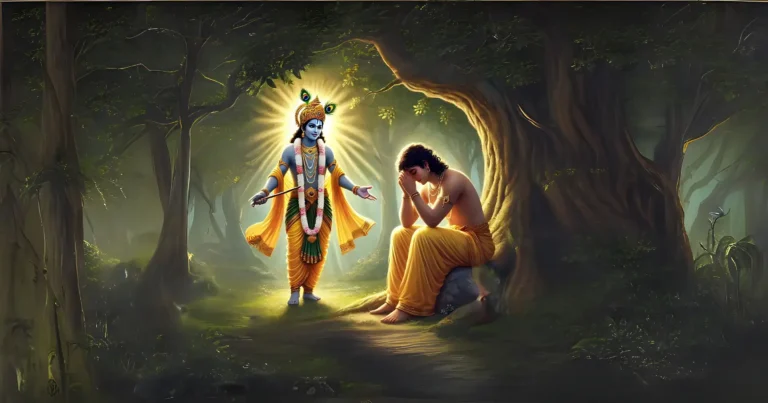Please Like the Blog and Share it for Maximum Reach
Table of Contents
What is the Modern man’s state of mind?
Man is filled with too much of content that fills his mind and his surroundings. This is vishaya or sense objects with which he interacts through thought, word or actions. This leaves mind and intelligence saturated and tired because of which man is unable to operate with optimum efficiency.

The inner being of man becomes overloaded with desirable and undesirable thoughts which drain him of vital energy. Thus it becomes important to conserve the vital energies that maintain life which are responsible for instilling joy and vigor as man functions in the material world. It is under these circumstances that meditation practice becomes important for man.
How do we get in touch with the Higher Self?
Meditation practice is the need of the hour and was never relevant as much as it is now, given the stressful environment that we are surrounded with. Meditation practice is the need for all human beings without exception.
It is a common experience that when we fall asleep we enter into dreams. But there are several instances when we wake up and feel absolutely fresh. We remember that there was a certain period in sleep when we were not even aware of any dream happenings. The sleep was dreamless and was devoid of any content.

The strange thing about this condition is that one only remembers the experience after waking up and was even unaware of this very condition when it actually happened. It will not be wrong to say that the dreamless condition was intuited after one has woken up.
There is only a trace of memory that the event must have happened and one is sure about it. This is the condition when one is in touch with the higher self, the param tattva and yet one was not conscious of the happening.
A certain amount of freshness came about because of this process and energy was reinstated or renewed on waking up. This experience is similar for all people without any differences. However, if one did not experience the deep sleep dreamless state, one would not be able to feel this freshness after waking up.
What does we mean by Meditation Practice?
It is important to understand from the above example that one was in touch with such a state whereby one could regain all freshness and vitality. The life-energies were getting replenished in the deep sleep state. However the flip-side of this experience is that one is in an unconscious state when it all happened.
This means that, if somehow man could get in touch with a similar state consciously and that too for longer periods by being wakeful, one may be able to draw immense energy and vitalize himself at will.

This is exactly the practice of meditation. The highlight of the state of perfect meditation practice is that the mind is free of all content, in a state of alert and intense blankness. The state of intense blankness is the state of union or yoga that is to be in oneness with the super-soul. This is being associated with Universal divinity which is the cause of all causes. This also can be referred as the field of infinity or infinite possibilities.
Can one think of God in meditation practice?
On the other hand if there is a continuous flow of perception to a particular form of God even that will be considered as a state of perfect Yoga. The form of God can never be different from the Supreme Being Himself.
If one is continuously thinking of a form of Lord Rama or Krishna means that the thought has become one with the qualities, form, name, abode or glories of that being and that too is that being represents the Supreme Personality of Godhead.
Whenever the mind flows in a single direction towards forms that have been declared as the expressions of the Supreme Being as per the scriptures of Sanatana Dharma, such flow of the mind is also considered as the perfect state of meditation practice.
8 Questions from Sanatana Dharma
The scores generated in this Quiz are absolute. There are right or wrong answers to each Question. A percentage towards 100 indicates that you are more aligned to the overall subject matter.
Before the mind can qualify itself for meditation practice into blankness or an aspect of the personality of Supreme Being, it is important to develop the faculty of concentration in order to reach these continuous levels of perception known as meditation at will.
What is Concentration?
Concentration is the ability of fixing the mind on an external object or an internal point continuously, without interruption or break for twelve seconds. If an aspirant is able to keep his mind focused exactly for 12 minutes without lapse in focus on a higher object like God or keep it externally focused on a point outside then that act of concentration will be transformed into meditation automatically.
Of course this act has to be performed without force or pressure and hence it takes a lot of practice before one is able to meditate successfully. The 12 minutes of undeterred focus on an object can be termed as Dhyana in Sanskrit.
What is the benefit of Concentration exercises?
This act sharpens the intellect by leaps and bounds. But a caveat to this exercise is that it should be never done without a person technically known as a Guru who is adept in the art of meditation and should have practised and mastered this art, himself under his Guru. Find out the intentions of a True Guru in this Video What is the Power of a Guru? | The Role of Enlightened Guru in Spiritual Journey

If this precaution is overlooked, it can cause sever damage to mental, physical, emotional and spiritual health. So, this point should be on topmost priority for anyone taking up such Meditation Practice.
Coming back to our topic, The act of focused concentration or Dhyana triggers a wide range of powers that not only sharpens intellect but brings intelligence under control. Intelligence comes under control only after prolonged practice of concentration exercise.
It is important that one performs the act of concentration along with an expert alone, as I mentioned earlier. Performing concentration or specific Meditative practices deal with altering states of consciousness and hence it is possible that one may come into contact with certain vibrations in nature, which one is unfamiliar with.
A person who has already practiced some form of Dhyana for an extended period of time will be one with a superior life-energy level and his presence shall regulate the sporadic experiences which one may undergo due to intense concentration or meditative efforts.
What is Meditating on Subjective Reality mean?
Meditation practice may be objective, on qualities or purely subjective or on one’s own breath. In objective meditation practice the Sadhaka meditates upon an idol or picture of his Ishta Devata—may be Lord Shiva, Vishnu, Rama or Krishna. For him, the idol is something alive, vibrating with supreme reality, omnipresent, omniscient, and omnipotent.

He may meditate upon the beatitude, the qualities, the activities of his Ishta-Devata or he may meditate upon the all-pervading pulsating Supreme Energy which is within him and without, permeating everywhere. This is subjective meditation practice. Such meditation is based on meditating on Subjective reality. Meditation on subjective reality is the same as invoking the Supreme reality in one’s life and gravitating to that final Absolute.
Please Like the Blog and Share it for Maximum Reach






